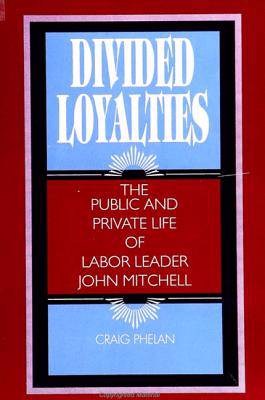
- Retrait gratuit dans votre magasin Club
- 7.000.000 titres dans notre catalogue
- Payer en toute sécurité
- Toujours un magasin près de chez vous
- Retrait gratuit dans votre magasin Club
- 7.000.000 titres dans notre catalogue
- Payer en toute sécurité
- Toujours un magasin près de chez vous
145,45 €
+ 290 points
Format
Description
John Mitchell was a contradictory figure, representing the best and worst labor leadership had to offer at the turn of the century. Articulate, intelligent, and a skillful negotiator, Mitchell made effective use of the press and political opportunities as well as the muscle of his union. He was also manipulative, calculating, tremendously ambitious, and prone to place more trust in the business community than in his own rank and file. Phelan relates Mitchell's life to many issues currently being debated by labor historians, such as organized labor's search for respectability, its development of a large bureaucracy, its ambiguous relationship to the state, and its suppression of worker input. In addition, he shows how Mitchell's life illuminates broad economic and political developments in the late nineteenth and early twentieth centuries.
Spécifications
Parties prenantes
- Auteur(s) :
- Editeur:
Contenu
- Nombre de pages :
- 438
- Langue:
- Anglais
- Collection :
Caractéristiques
- EAN:
- 9780791420874
- Date de parution :
- 15-09-94
- Format:
- Livre relié
- Format numérique:
- Genaaid
- Poids :
- 762 g







